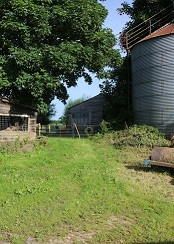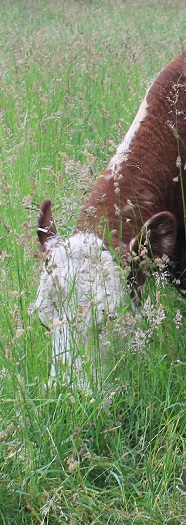Implement Strong Sustainable Practices And Help Care For The Planet
Sustainable farming means different things to different people, however they all share a common concern in preventing the degradation of some aspect of the farm.
Some farmers are primarily concerned with degradation of natural resources (eg. their land is becoming less productive). Other farmers may be more concerned about degradation of profitability, which could be due to increased labour or material costs, poor planning, or simply changing conditions in the economy. The causes and the solutions to such problems are different in each situation.

Course Duration: 100 hours
Course Structure
The course is divided into eight lessons.
- Introduction
- Sustainable ways of farming
- Whole farm planning
- Land Management programs
- Sustainable ways of farming
- Natural farming
- Organic farming
- Permaculture
- No Dig techniques
- Biodynamics
- Soils
- Growing media
- Major types of soil problems
- Soil structural decline
- Erosion
- Salinity
- Acidification
- Soil improvements
- Phytotoxicity
- Adding organic matter to soils
- Cultivation techniques
- Conservation tillage
- Plant nutrition
- Soil life
- Cover crops
- Water
- Types of water storage
- Livestock water requirements
- Water problems
- Water quality
- Reed beds
- Water saving measures
- Recycling
- Swales and keylines
- Irrigation systems
- Land Care
- Weed Management
- Preventative measures
- Tree management
- Timber lots/plantations
- Wind breaks
- Wildlife corridors
- Wildlife habitats
- Pest and diseases
- Financial Sustainability
- Economic principles
- Developing a Farm Business Plan
- Financial plan
- Controlling growth
- Value adding
- Enterprise mix
- Ecotourism
- Broad Management Strategies
- Toward better planning
- Land care or land management
- New enterprises
- Broad management categories
- Marketing
- Personal welfare
- Plan drawing of farm
- Looking at risk
- Quality systems
- Plant Enterprises
- Crop management
- Hydroponic fodder
- Hay
- Considering new crops
- Nuts
- Organic farming
- Agro-forestry
- Hydroponics
- Herbs
- Animal Enterprises
- Deer
- Ostriches
- Emus
- Alpacas
- llama
- Goats
- Aquaculture
- Wool and meat production
- Horses
Enrol Today
Ready to get started? Click on the orange enrol now button.
Have questions? Click here to email our course counsellors.
How Many Ways Can You Be More Sustainable?

Sustainable agriculture is a philosophy: it is a system of farming. It empowers the farmer to work with natural processes to conserve resources such as soil and water, whilst minimising waste and environmental impact. At the same time, the “agro-ecosystem” becomes resilient, self regulating and profitability is maintained.
There are many different ideas about how to be more sustainable. You will find different people promoting different concepts with great vigour and enthusiasm, and in most cases, these concepts will have something valuable to teach you. Many are quite similar in approach, often being just variations of a similar theme. Each approach will have its application; but because it worked for someone else does not necessarily mean it will work for you. Some of these concepts are explained below.
Low Input Farming Systems
This approach is based on the idea that a major problem is depletion of resources. If a farmer uses fewer resources (eg. chemicals, fertiliser, fuel, money, manpower), farm costs will be reduced, there is less chance of damage being caused by waste residues or overworking the land, and the world is less likely to run out of the resources needed to sustain farming.
Regenerative Farming Systems
This seeks to create a system that will regenerate itself after each harvest.
Techniques such as composting, green manuring and recycling may be used to return nutrients to the soil after each crop. Permaculture is currently perhaps the ultimate regenerative system. A permaculture system is a carefully designed landscape which contains a wide range of different plants and animals. This landscape can be small (eg. a home garden), or large (eg. a farm), and it can be harvested to provide such things as wood (for fuel and building), eggs, fruit, herbs and vegetables, without seriously affecting the environmental balance. In essence, it requires little input once established, and continues to produce and remain sustainable.
Biodynamic Systems
This approach concentrates mobilising biological mechanisms. Organisms such as worms and bacteria in the soil break down organic matter and make nutrients available to pastures or crops.
Under the appropriate conditions, nature will help dispose of wastes (eg. animal manures), and encourage predators to eliminate pests and weeds.
Organic Systems
Traditionally this involves using natural inputs for fertilisers and pest control, and techniques such as composting and crop rotation. In Australia and many other countries, there are schemes which "certify" produce as being organic. These schemes lay down very specific requirements, including products and farming techniques which are permitted, and others which are prohibited. In Australia, you can find out about such schemes through groups such as the Biological Farmers Association (BFA) or the National Association for Sustainable Agriculture (NASAA).
Conservation Farming
This is based on the idea of conserving resources that already exist on the farm. It may involve such things as identifying and retaining the standard and quality of waterways, creek beds, nature strips, slopes, etc.

Who Can Benefit From This Course
- Farmers looking for a better understanding of options to move forward
- Students of Agriculture
- Investors and other stakeholders in Agriculture
- Businesses that provide services or supplies to farms